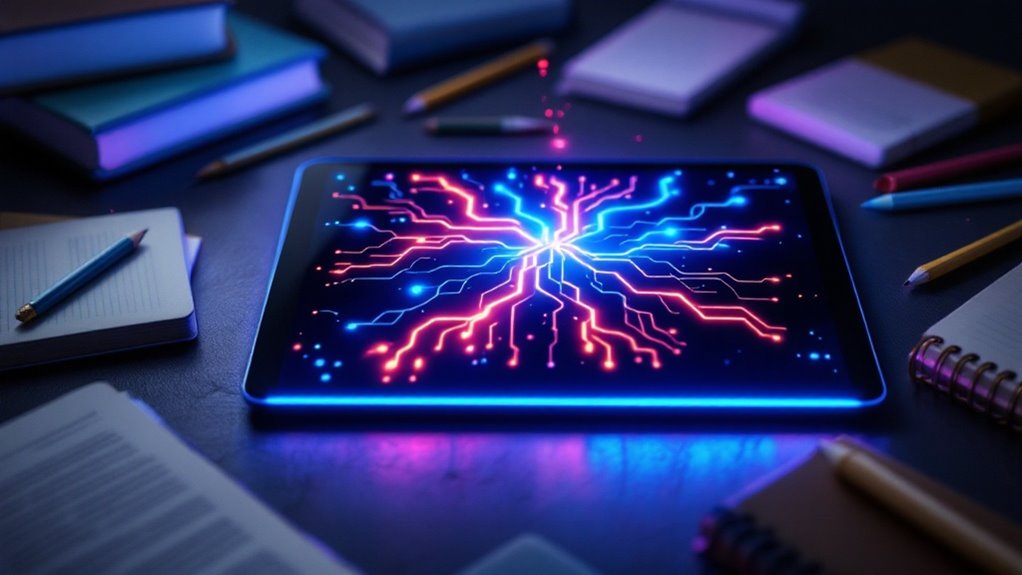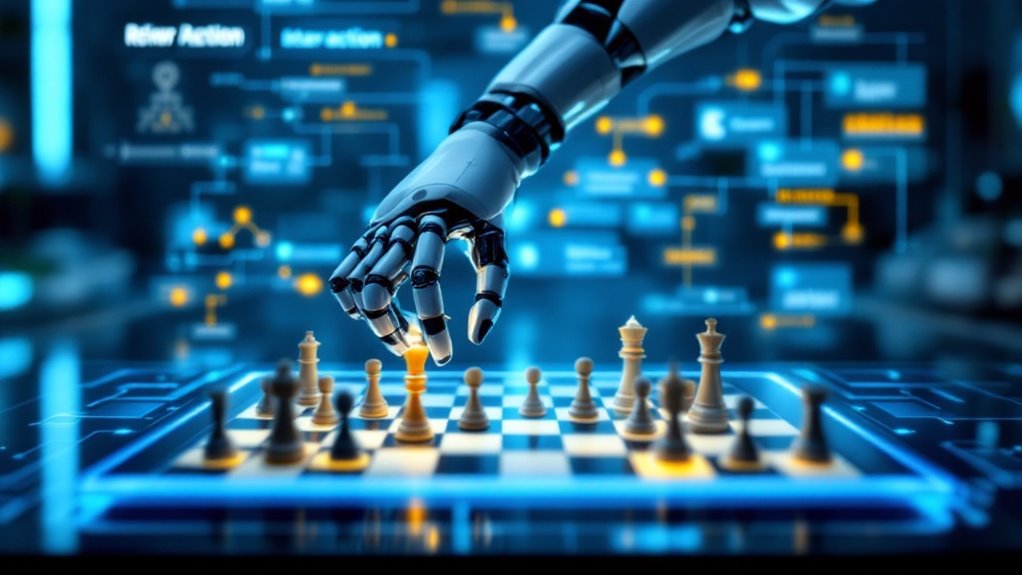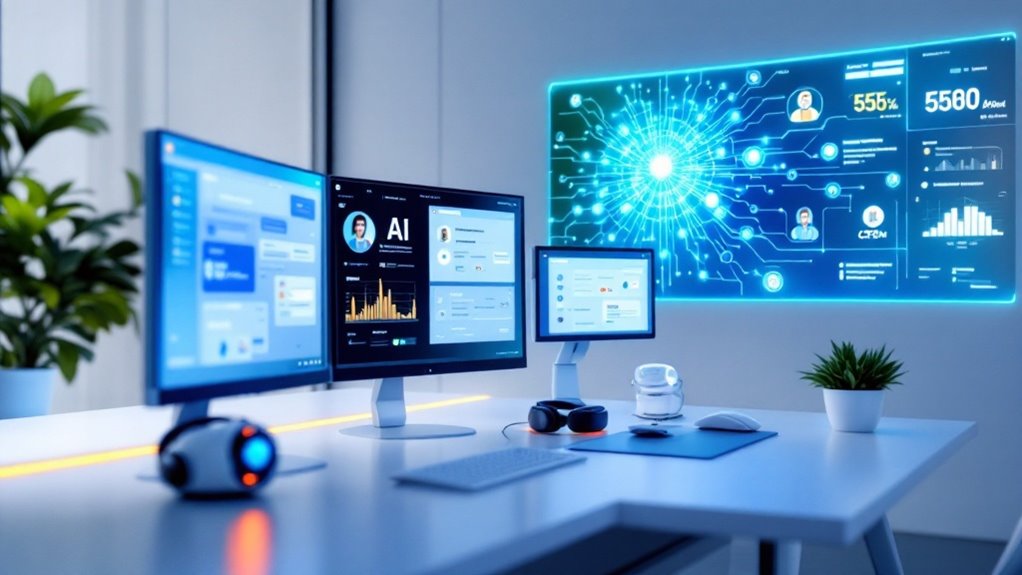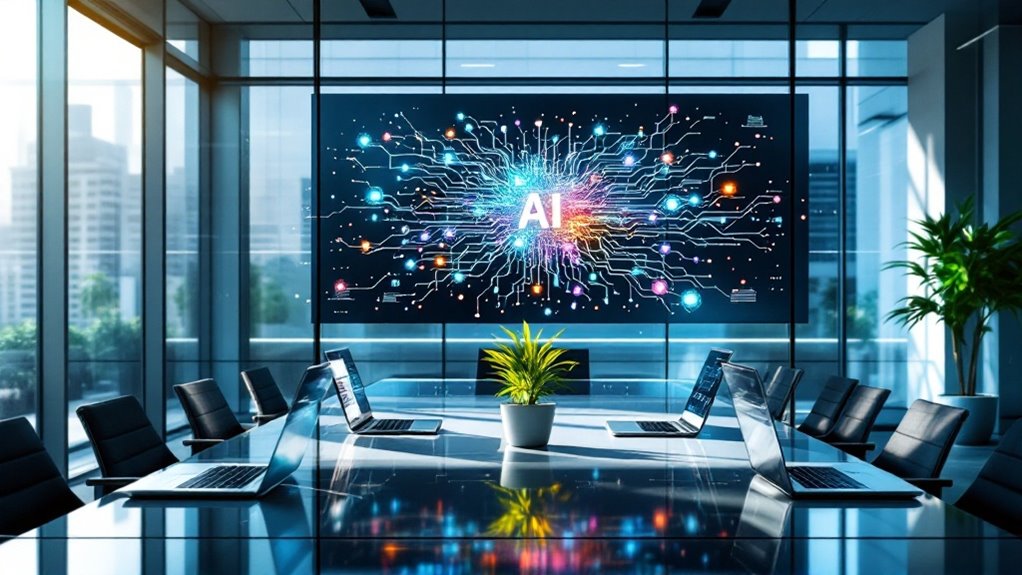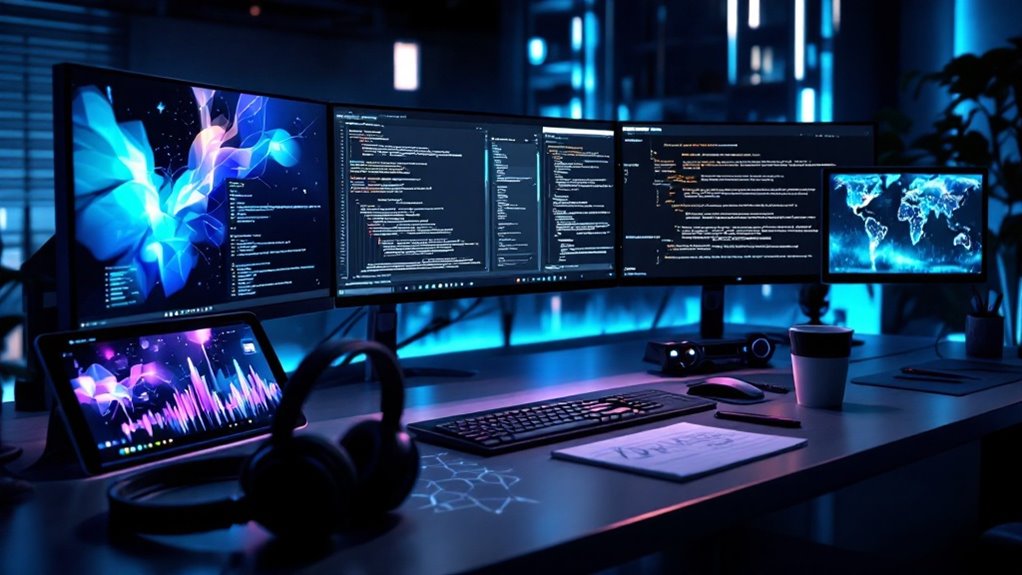AI is revolutionizing education by ditching the one-size-fits-all model for personalized learning paths. Smart algorithms analyze student performance and preferences, creating Netflix-style recommendations for your brain. Adaptive systems customize content, adjust assessments in real-time, and let students progress at their own pace. Teachers transform from lecturers to mentors while AI handles the grunt work. With 62% higher test scores reported, this classroom makeover might just be the upgrade education desperately needed.
While traditional education has often followed a one-size-fits-all approach, AI-powered personalized learning paths are flipping the script on how students absorb knowledge. Gone are the days when everyone trudged through identical textbook chapters at the same pace—AI algorithms now analyze student performance data, learning preferences, and behavioral patterns to create educational experiences as unique as the students themselves.
Think of it as Netflix recommendations, but instead of suggesting another true crime documentary, it’s serving up the perfect calculus explanation you’ll actually understand.
These smart systems don’t just customize content—they’re constantly evolving. As students interact with materials, adaptive assessments make real-time modifications, adjusting both complexity and format.
Struggling with fractions? The AI might serve up an interactive visualization rather than another written explanation. Mastered photosynthesis already? Great, you can skip ahead while your classmates catch up. No more staring at the ceiling waiting for others to finish.
The pacing revolution might be AI’s most impressive feat. Students progress based on actual mastery rather than arbitrary timelines. Prerequisites are verified before moving forward, ensuring solid foundations—because trying to understand chemical bonds without grasping atomic structure is like watching the season finale without seeing any previous episodes.
AI’s pacing revolution lets students advance when they’re truly ready—no more education on an assembly line.
For teachers, these technologies are like having a super-powered teaching assistant. While AI handles grading and flags struggling students, educators can focus on what computers can’t do: providing human connection and mentorship. Just as AI has proven to reduce errors in workplace environments, it similarly minimizes assessment mistakes in educational settings. The shift from lecturer to facilitator transforms teaching philosophy, allowing educators to embrace pathways and playlists that meet individual student needs.
Early warning systems identify disengagement before students mentally check out to their TikTok feeds.
The accessibility benefits are equally transformative. From text-to-speech capabilities to content delivered in preferred learning modalities, AI is democratizing education for diverse learners.
Research shows that students using AI-driven adaptive learning solutions have experienced a 62% increase in their test scores compared to traditional teaching methods.
And let’s be honest—isn’t it about time education caught up with the personalization we’ve come to expect from every other digital experience in our lives? The classroom of tomorrow is finally becoming as individualized as the students sitting in it.
